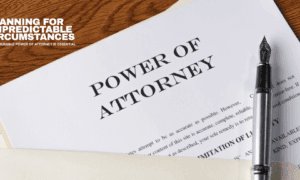Inheritance tax, or estate tax, is a tax on the assets left behind by a deceased person to his heirs. The tax rate and threshold vary by country, but it can be a significant expense for those who inherit large estates. Here are some strategies to avoid or reduce inheritance tax:
Gifting: One of the simplest ways to reduce inheritance tax is to gift assets to your beneficiaries during your lifetime. According to CNBC, the law currently allows you to gift up to USD 17,000 annually to any number of people without paying taxes. Moreover, gifts given three years before your death is not subject to estate tax. The Tax Cuts and Jobs Act (TCJA) allows a combined gift and estate tax exemption of $12.92 million until the 2025 tax year.
Trusts: Setting up a trust can help to minimize inheritance tax. Assets placed in a trust do not usually form part of the estate and therefore are not subject to inheritance tax. There are different types of trusts, such as irrevocable trusts, which cannot be changed or revoked once established and revocable trusts, which can be changed or revoked by the person who set it up.
Life insurance: You can use life insurance policies to provide funds for your beneficiaries to pay any inheritance tax due. The proceeds of the policy are typically not subject to inheritance tax, so it can be a useful way to provide for your heirs while minimizing their tax liability. You should consult a tax firm like Hogan CPA Financial Services because the law may include some policies in your estate.
Charitable giving: Donating assets to charity can reduce the size of your estate and, therefore, the amount of inheritance tax due. Additionally, charitable donations may qualify for tax deductions, which may reduce your tax liability further.
Pension schemes: Pension schemes are exempt from inheritance tax unless there are benefits to survivors. By contributing to these schemes, you can reduce the size of your estate and avoid inheritance tax on pension assets.
Common Estate Planning Mistakes to Avoid
Fail to create a will: A will is a legal document outlining the desired distribution of your assets after you pass. Without a will, the state’s intestacy laws will determine who inherits your assets which may not be what you intended.
Not updating your estate plan: Life circumstances can change, and it’s important to update your estate plan regularly to reflect those changes. Failing to update your estate plan can lead to unintended consequences and disputes.
Failing to consider tax implications: Estate planning involves considering tax implications, including income tax, gift tax, and estate tax. Failing to consider tax implications can result in your heirs receiving less than you intended.
Not selecting the right executor: The executor is responsible for administering your estate after you pass away. It’s important to choose someone trustworthy, responsible, and capable of managing your affairs.
Conclusion
Estate planning is an essential process that helps individuals manage their assets, take care of their loved ones after they pass away, and reduce their tax liability. Estate planning mistakes can lead to complications and unintended consequences.



































